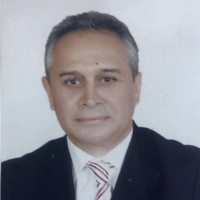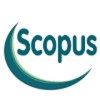Research Article
Aim & Scope
Aims:
The Journal of Energy Systems (JES) aims to publish high quality research and review papers on energy systems design and implementation. The submitted materials must fulfill the conditions of being innovative, sustainable and practical information to make an impact on the society of energy engineering. The novel research may cover experimental practices, theoretical studies or both of them. The journal promotes the contributions of academic and technical bodies from especially the interdisciplinary research groups, thereby new ideas can be discussed in a scientific manner.
Journal of Energy Systems (JES) is the official journal for European Conference on Renewable Energy Systems - ecres.net
Journal of Energy Systems is an international, open-access, peer-reviewed journal.
Scope:
The Journal of Energy Systems (JES) scopes the following subjects:
• Energy materials production and characterization
• Heating/cooling systems
• Energy/exergy analysis
• Smart grid
• Electrical machines
• Energy efficiency
• Wind energy
• Solar concentrating systems
• Photo-voltaic and their installation
• Nuclear fusion systems
• Harvesters
• Energy transmission systems
• Hydro-energy plants
• Bio-mass systems
• Bio-diesel systems
• Combustion
• Conventional energy systems and recovery
• Off-shore and tidal energy systems
• Engines and their combustion features
• Power electronic systems for renewable energy
• Hydrogen energy systems
• Fuel-cell systems
• Energy statistics and efficiency
• Efficiency in nuclear plants
• Energy education
• Energy informatics
The subjects above give a comprehensive view to understand the related field of the journal, whereas similar multidisciplinary research topics can also be considered as publication material. The journal uses peer-review methodology to evaluate the papers. Each paper is reviewed by at least 2 reviewers.
Author Guidelines
To prepare your manuscript please use the following submission
files.
Submission Files
Title Page (Download from Here)
Title Page must be include all the information of the authors (Name, Surname, Institution, City, Country, email address, ORCID ID). You will be guided step-wise through the creation and uploading of the various files. (Only .doc or .docx files will be accepted, please DO NOT upload the manuscript as PDF file.
Manuscript Template (Download from Here)
You will be guided step-wise through the creation and uploading of the various files. (Only .doc or .docx files will be accepted, please DO NOT upload the manuscript as PDF file.
In order to sustain a solid draft for the submitted manuscripts, the journal web-site includes a novel template file, where the authors can use freely to write their text. Inside that journal template, the spaces, fonts, address details and e-mail info should be explicitly indicated. Every manuscript page, including the title page, references, tables, etc., should be numbered correctly. Manuscripts must be written in “English”. Non-native contributors are strongly advised to ensure that a colleague fluent in the English language or a professional language editor has reviewed their manuscript. Concise and formal English without jargon is required. Repetitive use of long sentences and passive voice should be avoided. British and American spellings are acceptable however must be consistent with the meaning. To speed up the processing, authors must use the manuscript template file.
In principle, the journal follows the conventions of Scientific Style and Format, The Council of Science Editors (CSE) Manual for Authors, Editors, and Publishers, CSE, Reston, VA, USA. If symbols such as ×, µ, η, or ν are used, they should be added using the Symbols menu of Word. Degree symbols (°) must be used from the Symbol menu, not super-scripted letter o or number 0. Vector multiplication symbols must be used (×), not the letter x. Spaces must be inserted between numbers and units (e.g., 3 kg) and between numbers and mathematical symbols (+, –, ×, =, <, >), but not between numbers and percent symbols (e.g., 45%). Please use SI units. All abbreviations and acronyms should be defined at first mention. Latin terms such as et al., in vitro, or in situ should not be italicized.
Manuscript content can be organized as follows: Research articles should be divided into the sections listed below or as appropriate. Principal sections should be numbered consecutively (1. Introduction, 2. Materials and methods, Results and Discussion, Conclusions, etc.) and subsections should be numbered 1.1., 1.2., etc. Do not number the Acknowledgements or References sections.
Copyright Release Form (Download from Here)
Must be downloaded and signed by the corresponding author.
Similarity Report (Download from Here)
Please upload the similarity report of the manuscript. Similarity report is a plagiarism test report. The authors need to provide full-text originality report in a PDF file. The similarity report must be prepared by following the rules;
EXCLUDE QUOTES: OFF
EXCLUDE BIBLIOGRAPHY: ON
EXCLUDE MATCHES: OFF
The acceptable similarity report percentage for Journal of Energy Systems is <=20% and maximum percentage from same source is <=3% After examining the similarity report, the editorial team will decide whether the manuscript will be directed to review or not.
Cover Letter (Download from Here)
Please explain in your own words the significance and novelty of the work, the problem that is being addressed, and why the manuscript belongs in this journal. Do not simply insert your abstract into your cover letter! Briefly describe the research you are reporting in your paper, why it is important, and why you think the readership of the journal would be interested in it.
Ethical Principles and Publication Policy
Upon certifying that neither the manuscript nor its main contents have already been published or submitted for publication in another journal, papers are accepted for possible publication process which can be found at the journal website, must be signed by the corresponding author on behalf of all authors and must accompany all papers submitted. Please see the form for additional copyright details. After a manuscript has been submitted, it is not possible to add, remove or change the order of authors. If authors do so, their submissions will be canceled.
Manuscripts may be rejected without peer review by the editorial team if they do not comply with the instructions for authors or if they are beyond the scope of the journal. After a manuscript has been accepted for publication, i.e. after referee-recommended revisions are complete, the author will not be permitted to make changes from the manuscript that was accepted by the editor. Before publication, the galley proofs are always sent to the authors for corrections.
Mistakes, which occur due to some negligence on our part during final printing will be corrected in an errata section in a later issue, if they exist. However, that process does not include those errors left uncorrected by the author in the proof.
JES follows the guidelines, given by the Committee on Publication Ethics (COPE) for any publication disputes.
The following ethical duties and responsibilities are written in the light of the guide and policies made by the Committee on Publication Ethics (COPE).
The publication of an article in a peer-reviewed journal is essential for the development of a coherent and respected network of knowledge. Peer-reviewed articles support and embody the scientific method. Therefore, it is important for all parties involved in the publication process: the author, the journal editor, the peer reviewer, and the publisher to agree upon the standards of expected ethical considerations.
Responsibilities of Authors
The authors who submit their manuscripts to Journal of Energy Systems are expected to comply with the following ethical responsibilities:
- Authors obliged to participate in peer review process.
- Each author must contribute to the research equally.
- Authors should state that all data in article are real and authentic.
- Authors are obliged to provide retractions or corrections of mistakes.
- Authors should list the references and any financial support.
- Authors should document that there is no plagiarism, no fraudulent data in their studies.
- Authors are forbidden to publish same research in more than one journal.
- If the manuscripts submitted to be published are subject of conflicting interests or relations, these must be explained.
- Author(s) should document that they have the participants' consent and the necessary permissions related with the sharing and research/analysis of the data that are used.
- Author(s) must upload the originality report of their study while submitting a study. More information please click here.
Responsibilities of Reviewers
The review process at the Journal of Energy Systems is carried out on the principle of double-blind review which has a direct influence on the publication quality and ensures confidentiality by objective and independent review. Reviewers do not contact the authors directly, and the reviews and comments are conveyed through the journal management system. Therefore, the reviewers working for the Journal of Energy Systems are supposed to accept the following ethical responsibilities:
Reviewers must:
- review the manuscript objectively.
- have no conflict of interest with regard to the research, the authors, and/or the research funders.
- point out relevant published work that is not yet cited.
- treat the articles confidentially.
- review the manuscript in a constructive and kind tone, and avoid making personal comments including hostility, slander, and insult.
- review the manuscript on time and in accordance with the ethical rules stated above.
- inform the editor if they encounter a conflict of interests and decline to review the manuscript during the review process.
Responsibilities of Editors:
Editors are responsible for each study published in Journal of Energy Systems. Therefore, the editors must comply with roles and responsibilities based on the guides "COPE Code of Conduct and Best Practice Guidelines for Journal Editors" and published as open Access by Committee on Publication Ethics (COPE).
Editors must:
- ensure that each manuscript is reviewed in an unbiased, fair and timely manner.
- make sure that articles in the journal are published in accordance with the publication policies of the journal and international standards to ensure the quality.
- have complete responsibility and authority to reject/accept an article;
- have no conflict of interest with regard to articles they reject/accept;
- ensure the continuous development of the journal,
- promote publication of correction or retraction when errors are found.
- preserve anonymity of reviewers.
- monitor publishing ethics by editorial board;
- maintain the integrity of the academic record;
- exclude business needs from compromising intellectual and ethical standards;
- always be willing to publish corrections, clarifications, retractions and apologies when needed.
- select the new members of the editorial board from those who can contribute to the journal and are qualified enough.
- send manuscripts for review based on the subject of expertise of the editorial board members.
- regularly communicate with the editorial board.
- publish ethics issues
- arrange meetings with the editorial board for the development of publication policies and the journal.
Responsibilities of Publisher
Journal of Energy Systems is committed to ensure that commercial revenue has no impact or influence on editorial decisions. Also, JES will cooperate with other journals and/or publishers where this is useful to editors.
Publisher must hold the following responsibilities:
- Editors are responsible for all the processes that the manuscripts submitted to JES will go through and the decision-makers are the editors.
- The publisher accepts to have an independent editorial decision made.
- The publisher must protect the intellectual property rights of all the articles published in JES and keep a record of each unpublished article.
- The publisher bears all the responsibility to take the precautions against scientific abuse, fraud and plagiarism.
Plagiarism Detection:
The use of third parties’ ideas or words in their original form or slightly changed without a proper citation is considered as “plagiarism” and will not be tolerated. Even if a citation is given, if quotation marks are not placed around words taken directly from another author’s work, the author is still guilty of plagiarism. Reuse of the author’s own previously published words, with or without a citation, is regarded as self-plagiarism. All manuscripts received must be submitted with the Originality Report, which compares the content of the manuscript with the other published materials. In the case of a solid similarity to other published materials, the submitted materials are directly rejected and will not be considered for publication. Author(s) must upload the originality report of their study while submitting a study. More information please click here.
The peer review process is of utmost importance for the success of scientific publishing. Committed to the protection and enhancement of the peer review process, JES has an obligation to assist the scientific community in all aspects of publishing ethics, especially in cases of (suspected) duplicate submission or plagiarism.
When a reader discovers a significant error or inaccuracy in a paper published in the Journal of Energy Systems or has any other complaint about editorial content (plagiarism, duplicate papers, etc.), he/she should make a complaint by e-mail to: ekurt52tr@yahoo.com. Considering complaints as an opportunity to improve, we try to respond quickly and constructively.
Article Withdrawal
Articles can be withdrawn and the author can be added only at the pre-review process.
OPEN ACCESS POLICY
Open Access Statement:
Journal of Energy Systems is committed to promoting free and unrestricted access to research outputs. Since its inception, Journal of Energy Systems has adopted an open-access policy, ensuring that all published articles are freely accessible to the public.
Journal of Energy Systems is an Open Access Journal and follows Open Access definition of Budapest Open Access Initiative (BOAI)
LICENSING POLICY
All articles in Journal of Energy Systems are published under the terms of the Creative Commons Attribution-NonCommercial 4.0 International (CC BY-NC 4.0) license. This license permits non-commercial use, distribution, and reproduction in any medium, provided the original work is properly cited.
For more information about the license, visit: CC BY-NC 4.0.
User Rights
Under the CC BY-NC 4.0 license, users are free to:
1. Share: Copy and redistribute the material in any medium or format.
2. Adapt: Remix, transform, and build upon the material.
The following terms apply:
1. Attribution: Users must give appropriate credit, provide a link to the license, and indicate if changes were made. This should be done in a reasonable manner, without suggesting endorsement by the authors or Journal of Energy Systems.
2. NonCommercial: Users may not use the material for commercial purposes.
No additional restrictions: Users may not apply legal terms or technological measures that legally restrict others from doing anything the license permits.
COPYRIGHT STATEMENT
By submitting their work to Journal of Energy Systems, authors agree to the following terms:
1. The copyright of the published article remains with the author under the CC BY-NC 4.0 license.
2. Authors authorize Journal of Energy Systems to publish the article and identify itself as the original publisher.
3. Authors grant the right to freely use the article to any third party, provided the original authors and citation details are identified.
4. This license does not impair or restrict an author's right to preserve the integrity and ownership of their work.
5. All commercial rights related to the article belong to the authors.
Digital Archiving
Journal of Energy Systems ensures long-term preservation of its articles by archiving them in recognized repositories. The LOCKSS system is utilized to collect, preserve, and present the journal's content.
Repository Policy
Journal of Energy Systems allows authors to deposit versions of their work in institutional or other repositories without any embargo. Authors can deposit the following versions:
1. Submitted Version: The author's original manuscript before peer review.
2. Accepted Version: The manuscript after peer review but before final publication.
3. Published Version: The final published article.
Authors can self-archive on personal websites, institutional repositories, and public and commercial subject-based repositories.
For more details about the open access policy, licensing, or author rights, please contact Journal of Energy Systems at: [erol.kurt@ecerg.com]
Price Policy
This journal charges the following author fees:
PHASE A) SUBMISSION PHASE
Article Submission Fee is 60.00 USD.
When you have submitted the paper, please communicate with Secretary Dr. B. DURSUN ( E-MAIL: bekirdursun_@hotmail.com ) for the BANK ACCOUNT INFORMATION.
After this payment arrives, the review process of your paper would start. This Article Submission Fee is required as part of the submission process to contribute to the Review and Administration Costs of the Journal of Energy Systems.
PHASE B) AFTER THE ACCEPTANCE (if your paper is accepted by the independent reviewers)
Article Publication Fee: 150.00 USD.
If the paper is accepted for publication, you will be asked to pay the Article Publication Fee to cover publications and administration costs. Please communicate with Secretary Dr. B. DURSUN ( E-MAIL: bekirdursun_@hotmail.com ) for the BANK ACCOUNT INFORMATION after you receive an acceptance for your paper.
Indexes
Citation Indexes
Other Indexes
Journal Boards
Editor in Chief

Prof. Dr. Erol KURT took his M.Sc. degree from the Inst. Science &
Technology, Gazi University in Ankara, Turkey in 2001 on Experimental Physics. He was
awarded by an European Graduate Collage Grant during his Ph.D study at the Inst. Physics &
Math., Bayreuth University in Germany. He completed his Ph.D. degree in 2004 on the
instabilities of rotating magnetic fluids and worked at Turkish Atomic Energy Authority R&D
Department for 3 years. Afterwards, He was assigned to the position of Assoc. Prof., at
Technology Faculty, Gazi University. His main research areas include energy systems design &
implementation, nonlinear phenomena in electrical/electronic circuits, electric machine design,
mechanical vibrations, chaos, plasmas and magneto-hydrodynamics.
He is founder chairman to 3 serial conferences, namely European Conference on Renewable
Energy Systems (ECRES – www.ecres.net ), International Conference on Mechanical
Engineering (ICMECE – www.icmece.org ) and Interdisciplinary Conference on Electrics &
Computer (www.intcec.org ).
He has been/is guest editor for many reputable journals including Q1, Q2,Q3
and Q4 journals. He is the Founder, Owner and Editor-in-Chief to a SCOPUS-indexed scientific
referred academic journal, Journal of Energy Systems (dergipark.org.tr/jes) and the member of
Turkish Science Research Foundation (TUBAV). Ha has been supervisor to many PhD, MSc
thesis and internationally and also supervising person for energy issues for the companies in
the country. He taught many physics and engineering courses in undergraduate and graduate
levels in the university. He is also conducting 2 Labs on energy systems and Electromagnetics
in Technology Faculty, which graduates engineers. He has 4 national patents and 1 utility model
on energy machines. He conducted many national research projects including TUBITAK and
university ones and international projects including Erasmus projects. He is one of the editors of
highly-cited book on energy, namely Energy Harvesting and Energy Efficiency: Technology, Methods, Applications”, 2017, Springer, UK. He also wrote a national book on Chaotic Dynamics
and translated a well-known Schauma’s Physics Book Series to Turkish. In addition, many book chapters were translated in Schauma’s Physics Book Series.
According to international ScholarGPS records, Prof. Dr. Erol Kurt is among leading 6,443 scientists and leading top scholar 2,034 prior to 5 years on “energy” world-widely.
Editor

Editorial Board


Born in 1949 in Ankara. He graduated from METU Mechanical Eng. He graduated from METU Mechanical Engineering Department in 1970 with High Honor degree. In 1971-1972, he studied fluid mechanics and aerodynamics at the NATO von Karman Institute in Brussels with a TÜBİTAK NATO scholarship and graduated with honors. In 1973 he received his M.Sc. degree and in 1979 his Ph. 1981 TUBITAK Incentive Award winner Kılkış retired as a Professor from METU Department of Mechanical Engineering in 1999. Department of Mechanical Engineering in 1999. He prepared six TSE Standards for Heat Pumps in the 1980s. He is a member of various technical committees of ASHRAE. In 2003, Kılkış was promoted to ASHRAE Fellow for his international achievements and in 2004 he was elected Distinguished Lecturer. In 2008, he received Distinguished Service and Exceptional Service awards. He is a member of Green Energy Council, Int. Journal of Green Energy and Exergy and an observer member of the IEA Heat Pump Program. He is also a revisor of ASHRAE handbooks. He is an international expert on green and sustainable buildings and has exergy-based analyses on carbon dioxide emissions, energy performance, exergy rationality and district energy systems. He holds patents on New Generation Hybrid Solar Energy Systems and Heat Pumps. He is the Second President of the European Renewable Energy Sources Heating and Cooling Council (RHC) and prepares reports on carbon dioxide reduction for the EU Presidency. Kılkış, who has realized the Mechanical Design Consultancy of Turkey's first LEED Platinum Building, has also served as the 13th Chairman of the Board of Directors of the Turkish Society of Plumbing Engineers. He has over 600 original publications. He has been a faculty member at METU, Gannon University and University of Missouri Rolla in the USA, and Başkent University. He is currently a regional distinguished lecturer of ASHRAE.
Translated with www.DeepL.com/Translator (free version)







Nicu Bizon (IEEE M’06; SM’16), was born in Albesti de Muscel, Arges county, Romania, 1961. He received the B.S. degree in electronic engineering from the University “Polytechnic” of Bucharest, Romania, in 1986, and the PhD degree in Automatic Systems and Control from the same university, in 1996. From 1996 to 1989, he was in hardware design with the Dacia Renault SA, Romania. He is currently professor with the National University of Science and Technology POLITEHNICA Bucharest, Pitești University Centre, Romania. He received two awards from Romanian Academy, in 2013 and 2016. He is editor of 17 books and more than 600 papers in scientific fields related to Energy. His current research interests include power electronic converters, fuel cell and electric vehicles, renewable energy, energy storage system, microgrids, and control and optimization of these systems.

Editorial Secretary
Journal of Energy Systems is licensed under CC BY-NC 4.0







